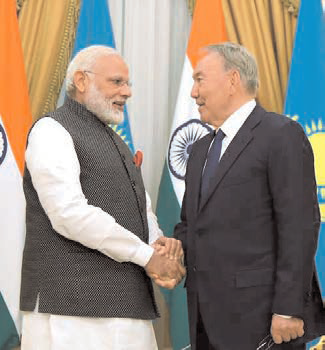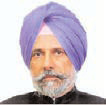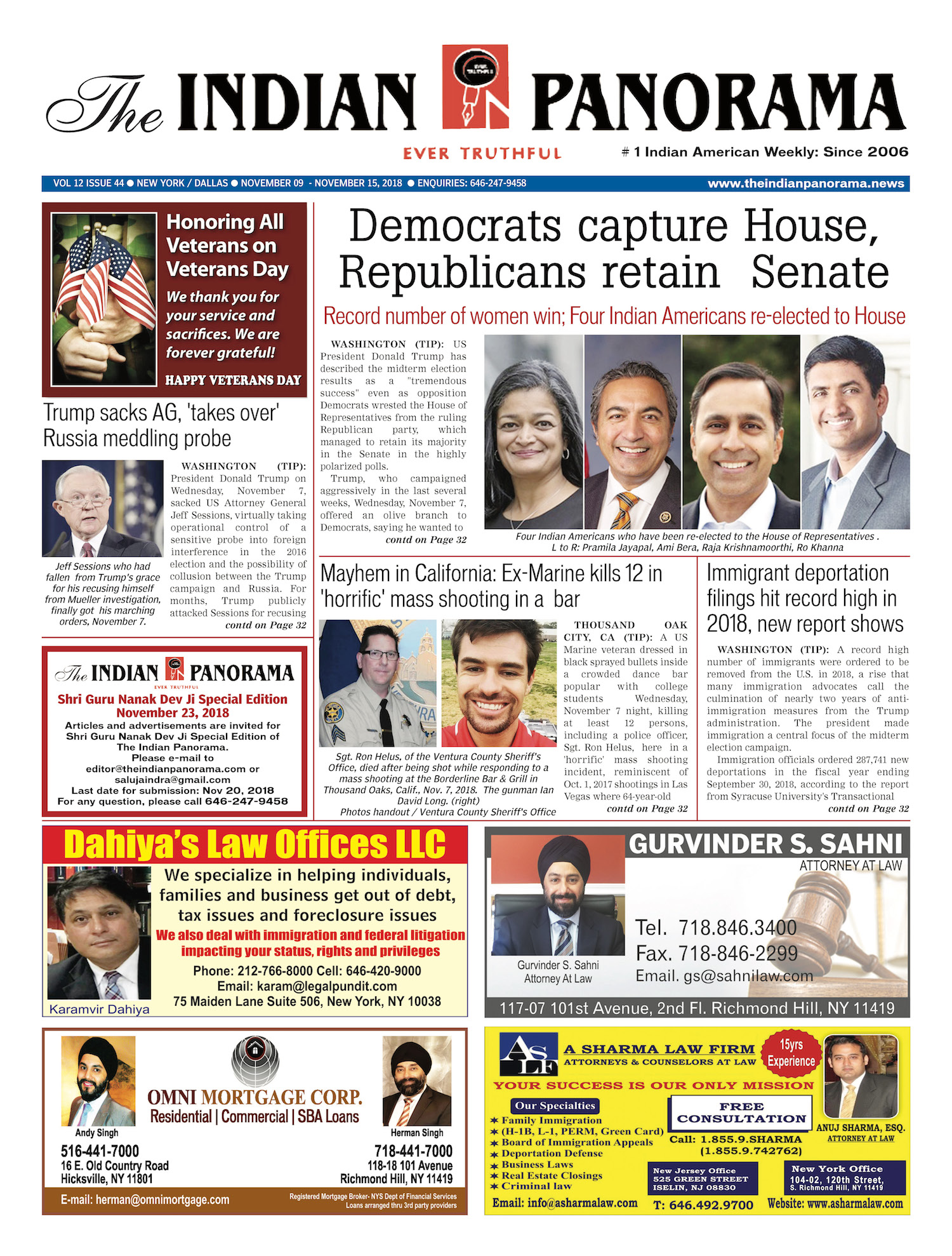

“Indo-Pak relations have a more complex pathology for their downward spiral. Modi came to power wanting to break the old cycle of talks and terror. He chose theatrical and personalized engagement with Sharif to leap over the complexities constricting a Pakistani leader, ranging from his relations with the army to pressure by jehadis with vote banks, and finally, his own credibility after the Panama Papers revelations”, says the author.
Prime Minister Narendra Modi, from May 29 to June 3, careened through Germany, Spain, Russia and France. The world has changed so dramatically in the three years he has held office that he was literally on a new pilgrimage. There is a law of diminishing returns in diplomacy. For instance, if you do not finalize a free trade agreement with the EU, the bilateral investment treaties having lapsed, their excitement about India begins to abate.
Putin seemed to toy with Modi, realizing that in a Trumpian world Indian strategic options had narrowed. He was not aligning against China and Pakistan. In fact, keeping Modi beside him during his interview with Megyn Kelly, whom Trump detests and who has traded CNN for NBC, Putin caused embarrassment to the Indian guest when questions on Trump campaign links to Russia were answered contemptuously.
PM Modi now heads to the Shanghai Cooperation Organization (SCO) Summit in Astana, Kazakhstan on June 8-9, where India and Pakistan are to be admitted as full members. Also attending are the Chinese President Xi Jinping and Pakistan PM Nawaz Sharif. India’s diplomatic relations with both nations are currently strained. The media in Delhi enquired logically whether a meeting with Sharif was imminent. A follow-up question would be, what about an interaction with President Xi?
External Affairs Minister Sushma Swaraj, having recovered from renal transplant, definitively ruled out one with Sharif.
The reason is self-evident as a series of episodes have hardened national positions, thus narrowing the space for engagement with both neighbors, in closer concert today than ever before.
Taking China first, it has persisted in opposing India’s membership of the NSG and stymied Masood Azhar’s listing by the UNSC committee. Even more provocatively, it finalized CPEC, traversing the disputed region of Gilgit-Baltistan, despite Indian objections. Then adding insult to injury, it included it in its OBOR meeting agenda in Beijing on May 14. It is an ambitious multi-trillion dollar connectivity initiative covering 68 countries, amounting to 40 per cent of global GDP. India declined to attend, citing breach of its sovereignty, besides casting doubts on its economic viability.
Almost predictably, two Chinese helicopters intruded into Indian airspace in the western sector and Chinese spokesman surmised that recent developments have made border resolution more difficult. India had earlier upped the ante by allowing the Dalai Lama to tour Arunachal Pradesh, with full fanfare, including a visit to the Tawang monastery.
Henry Kissinger opines in his book, On China, that the Chinese stratagem for dispute resolution has been to escalate the issue first, and then seek resolution. China should, by that logic, be seeking to de-escalate as it needs the Indian market and Xi faces a vital party congress later this year, and thus should not want tension with India to worsen. On the other hand, China has managed to assuage Donald Trump and thus dodged a trade or currency war, at least for the moment. Perhaps Modi-Xi need to share a swing in Astana, like in Ahmedabad, for a frank exchange.
Indo-Pak relations have a more complex pathology for their downward spiral. Modi came to power wanting to break the old cycle of talks and terror.
He chose theatrical and personalized engagement with Sharif to leap over the complexities constricting a Pakistani leader, ranging from his relations with the army to pressure by jehadis with vote banks, and finally, his own credibility after the Panama Papers revelations. When dealing with a leader with encumbrances, though keen to improve relations, a long game must be played, as in the short-run, he will be unable to deliver. Contrariwise, those opposed to normalization with India, except on their terms, will rush to sabotage engagement. By bringing the red-lines to the fences of army camps, breaching which triggers a stand-off with Pakistan, the control transfers to spoilers who can get a fidayeen to pull the trigger and disrupt engagement.
Simultaneously, the politics in the Valley has derailed. Adopting a militaristic and jingoistic approach, including first backing the use of pellet guns, and now human shield, on the pretext of Army and security forces being above debate, may consolidate a domestic vote bank, but ignores domestic law and international humanitarian norms. At any rate, it even betrays ignorance of the counterinsurgency doctrine which rests on winning the confidence of the people to isolate mischief-makers.
Thus, as the Indian and Pakistani leaders descend on Astana, both have new constraints. Modi cannot engage Sharif unless the Kulbhushan Jadhav case can be resolved. Coincidently, the next ICJ hearing is the day the SCO Summit opens, making it hardly conducive to political engagement. Pakistan would also be watching closely the latest Gulf developments where the ‘Sunni allies’ it hobnobbed with at the Riyadh summit are now pillorying Sunni Qatar simply because it rejected the anti-Iran tirade. Turkey has quietly thrown its weight behind Qatar. Iran, with which Qatar is bound by the joint ownership of the world’s largest gas field that literally links them below the Gulf waters, would be keeping all options open. Pakistan is caught in the middle.
The joker in the pack, as occurring more and more frequently, is Trump. Not content to let events play out he tweeted: ‘There can no longer be funding of Radical Ideology. Leaders pointed to Qatar- look!’ As events in the western neighborhood of India and Pakistan increase tension, Modi needs to rebalance his domestic politics and neighborhood policy.
At home in the face of slowing economy, now that even government’s figures show the debilitating effect of demonetization, social unrest and vigilantism, farmers’ protests turning violent and jobless tepid growth, he needs to change the ways of his government. The unleashing of the CBI against a television channel does not indicate self-confidence. Similarly, abroad, many old assumptions are passé. He needs diplomacy, not militarism; genuine nationalism, not jingoism; social cohesion, not majoritarian rabble-rousing; contemporary vision, not mythological mumbo-jumbo.
(The author is a former Secretary, Ministry of External Affairs, Government of India)




Be the first to comment